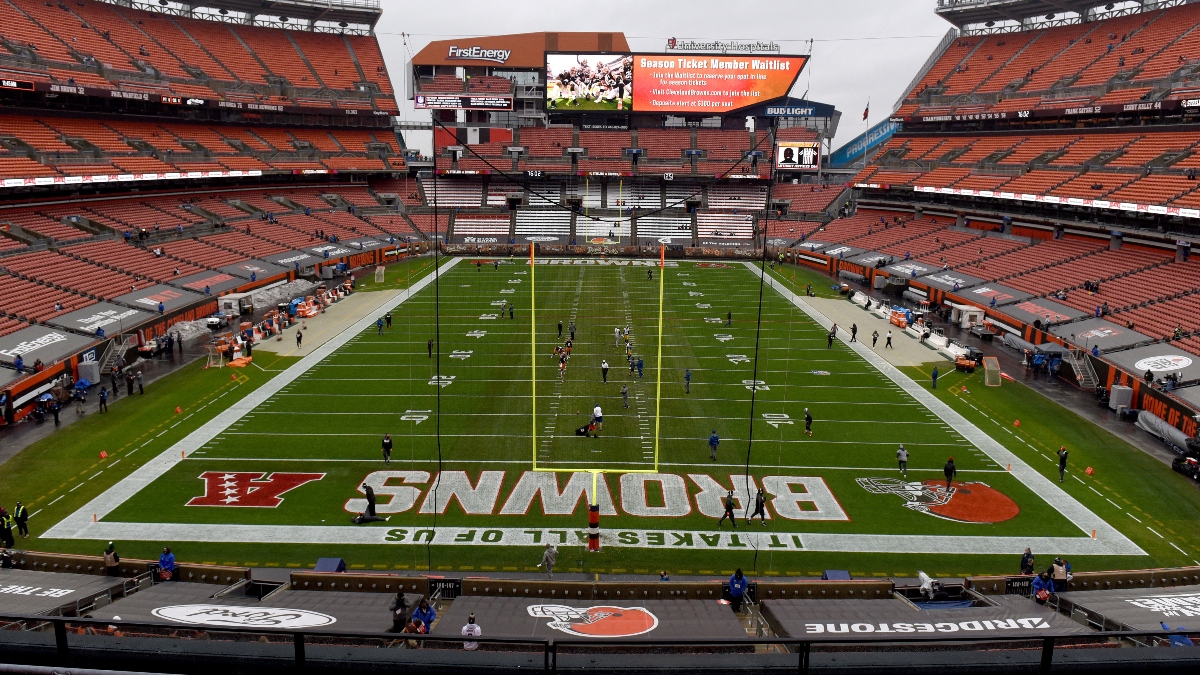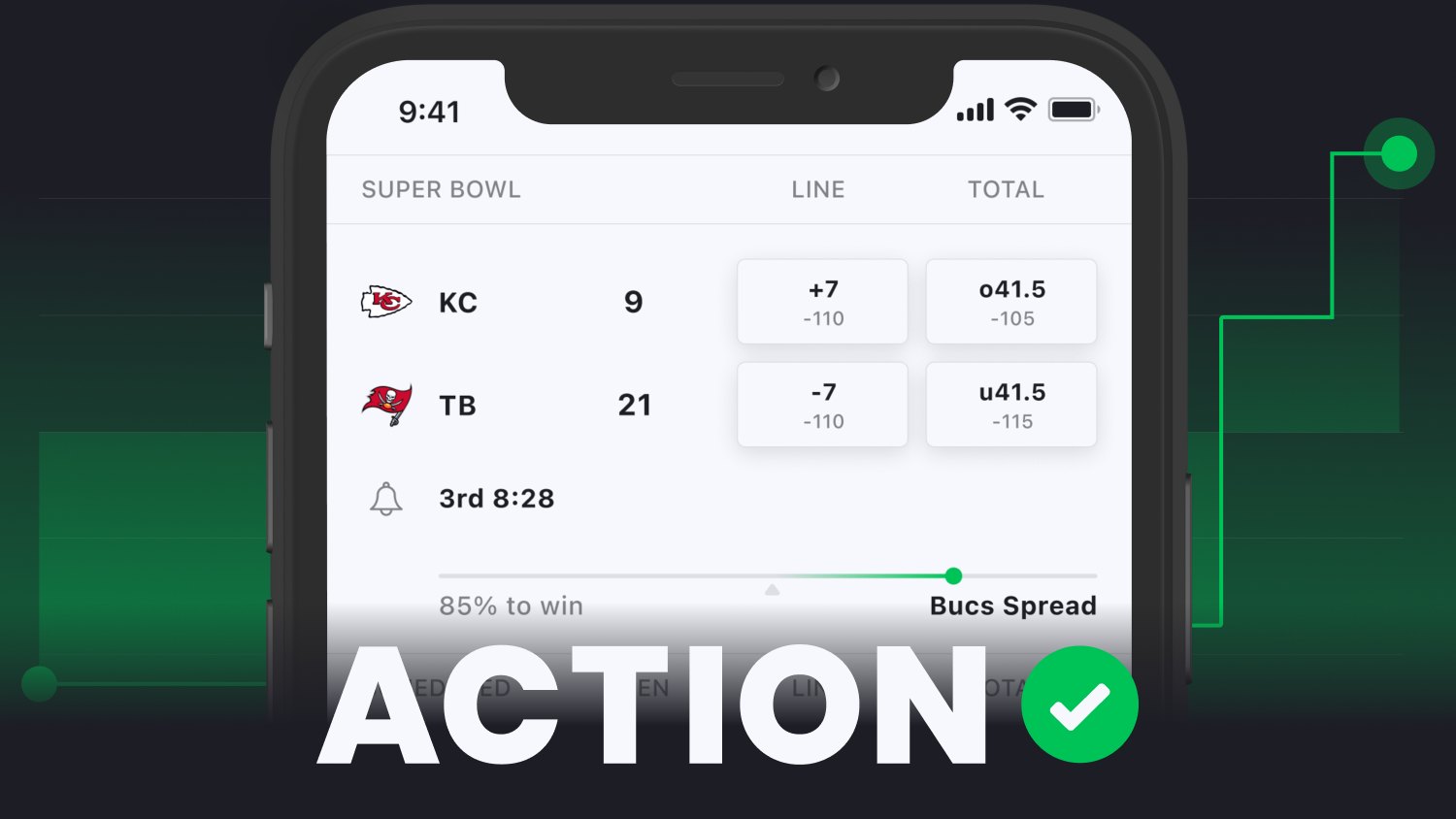Updated Ohio Sports Betting Sponsors Look to Continue Momentum
Nic Antaya/Getty Images. Pictured: FirstEnergy Stadium.
Ohio lawmakers advanced a sports betting bill last week after months of negotiations, building sponsors’ hopes the bill can pass the full legislature by month’s end.
The bill, which was amended earlier this month to permit up to 25 online and 33 retail licenses, passed the Senate with only minor opposition last week. The House must pass an identical version of the bill before it can pass into law.
The latest version of the bill is designed to prioritize licenses to Ohio’s professional sports teams and organizations, which lobbied heavily for these changes during more than a dozen hearings earlier this year. However, this amended, sports league-friendly legislation could shut out some of the state’s casinos from retail sportsbooks, creating another possible conflict in what has already been a lengthy and complex legislative process.

Ohio Sports Betting Bill Latest Details
As many as 25 separate operators could apply for online licenses under the current bill, five more than an earlier version’s limits. Each licensee could then contract with two separate online operators apiece, meaning there could be as many as 50 online skins, one of the highest caps in the country.
The latest bill gives “preference” to 10 professional sports organizations with Ohio franchises or events. That bill specifically includes the NFL (Cincinnati Bengals and Cleveland Browns); NBA (Cleveland Cavaliers); MLB (Cleveland Indians and Cincinnati Reds); NHL (Columbus Blue Jackets); MLS (Columbus Crew and FC Cincinnati); PGA TOUR; and NASCAR.
The major professional sports leagues and teams have myriad deals with top sportsbooks and it would appear national operators such as DraftKings, FanDuel, PointsBet, Bally’s and others would also seek market entry, either through a franchise or other entity.
That bill could allow for other sports leagues to apply for an online license including the WTA, which is hosting an event in Cleveland this year and lobbied for inclusion in the bill.
Other, non sports-related entities with a physical presence in the state can also apply. Sen. Nathan Manning, a bill sponsor, said during a bill hearing that even Ford Motor company would technically be eligible.
Assuming all 10 franchises take a license, that leaves 15 openings for all other business interests, including the state’s 11 casinos and hybrid racetrack “racinos,” all of which would likely apply for licensure. BetMGM, Barstool Sportsbooks, Caesars and TwinSpires all have partnerships with an Ohio gaming facility and would likely enter the market.
Retail Sportsbook Allocation
The amended bill expanded the retail license pool from 20 to 33 but could keep out some of the casinos.
Counties with 100,000 to 500,000 residents could have one sportsbook; 500,000 to 1 million could have two; and counties with more than a million could have three. In Cuyahoga County, which includes Cleveland, the Cavaliers, Indians and Browns would, theoretically, have priority to the only three retail licenses. That, in turn, would block out the county’s two casinos from retail books.
No other state alters retail sportsbook eligibility based on county population and no state with legal retail sports betting has passed a law that precluded a regulated, commercial brick-and-mortar casino from licensing eligibility.
In another addition to the latest version of the bill approved by the Senate, certain bars, restaurants and other liquor permit holders would be eligible for one of 20 kiosk licenses. These licensed businesses could open up two betting kiosks apiece that would have $200 betting limits and eligible bet type restrictions.
Next Steps
The bill’s sponsors have pushed for final passage out of the General Assembly by June 30. The bill still needs to pass through the full House. The Senate would then have to vote again on any House changes.
Lawmakers have had to work with competing would-be stakeholders by balancing access against market saturation. After months of negotiations, House adjustments seem possible, particularly around the retail sports betting clauses.
Though possible political pitfalls remain, the bill’s sponsors believe this latest version can help appease both their colleagues and state business interests. Spearheaded by Republicans in the GOP-controlled legislature, the concept of legal sports wagering has bipartisan support as well as backing from Gov. Mike DeWine.
“I am proud of what we have accomplished in this comprehensive gaming bill for Ohio,” Manning said in a statement last week. “It is fair, it creates opportunity for economic development and it's a win for taxpayers and our economy."
How would you rate this article?

